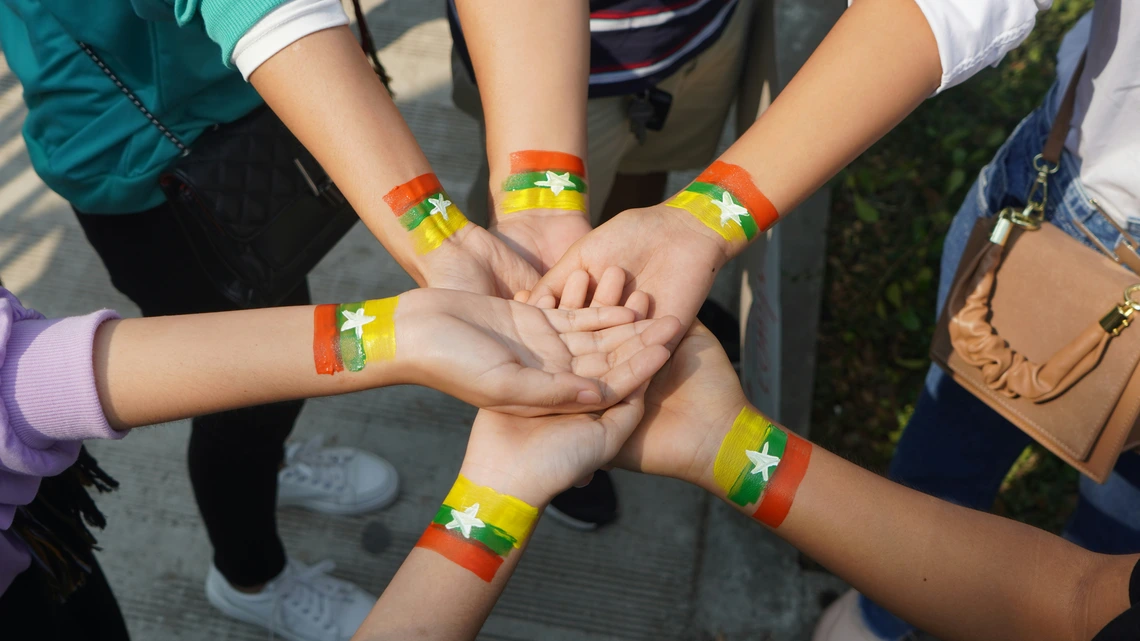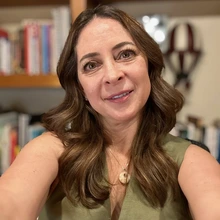“After The Coup”: Reflections on a US-Myanmar Virtual Student Exchange

Photo by Saw Wunna on Unsplash
In spring semester 2024, UArizona Human Rights Practice students joined a unique Virtual Student Exchange that brought them together in real time from students with Spring University Myanmar (SUM), an educational institution organized by pro-democracy activists inside that country and in exile. In this blogpost, UArizona student Mara Duran shares reflections on the experience. You can also read about alum Mitch Conroy's experiences.
by Mara Duran Dominguez
Student in Human Rights Practice, University of Arizona
For me, the most valuable part of the UA-SUM virtual exchange was getting to know Myanmar more deeply and traveling through history to understand the current situation of this country. Also, regarding their customs and traditions, SUM classmates spoke with great precision about aspects of their culture that I did not know; it was as if I had traveled to this beautiful place because they showed us pictures and some videos.

I learned how the clash of generations has marked a before and after in the political life of Myanamar. Young citizens now seek to express themselves and assert their opinions, question the government to demand changes and improve the quality of life of the people, and inspiring people to fight for these changes. It also helped me to see in a closer and more real way the role of human rights organizations in conflict situations.
During the UA-SUM Student Exchange, I had the opportunity to collaborate in a number of different ways. In the cultural presentation, I decided to talk about my country of origin. Since I was the only student from Mexico, and I found it enriching to share some highlights about my culture since most other students spoke about the United States. I also contributed to the planning of a youth initiative project which aims to provide opportunities for high school students to continue their studies through a scholarship program that supports them to continue their education. To plan this project, we started a group chat and then met in small groups via Zoom.
There were daily lectures with experts, which I found to be a window into the country's situation and the experiences of activists who seek to give voice to injustices. The young people transmitted love, respect for their traditions, and a desire to preserve them. I want to learn more about Myanmar’s culture and current political situation.
I was sad to learn that Myanmar has not yet gained the benefits of democracy. The country had the opportunity to start building democracy in 2015 with the first free elections in the country. They expected Aung San Suu Kyi, the representative of the National League for Democracy (NLD), to become president after the elections. Although her party won a landslide victory, the military did not allow her to govern the country on the pretext that her children were not born in the country.
The people in Myanmar heard that democracy is living with freedom; some people of previous generations, being unfamiliar with what living in democracy offers, showed little interest and penness to fight and push for changes they felt they did not need and concentrated on preserving their traditions. In some cases, the fear of confronting the current regime subdued them to obey and not question them. However, conditions in the country have been sensitizing older people as well to fight for their rights. The momentum provided by young people is opening the way to new ways of living life, demanding what they are entitled to, and exercising critical thinking to question how for several generations their human rights have been curtailed.
How to endure the pain that every human being experiences? How to understand the motives that drive them and lead them to face the injustices in Myanmar with courage? There is a special quality in each person who fights no matter what may happen to their lives on a personal level: they seek to defend truth, justice, and progress and generate a community that supports their cause in a just way. Their greatest crime is to refuse to remain silent in order to continue to fight for the welfare of their country.
Militariy rule has not managed to steal the will of Myanmar citizens, even though they are not allowed to express themselves or have contact with the outside world and social networks, much less be part of any movement that promotes the freedom to live and demand what is rightfully theirs. The military government believes it is doing the right thing by keeping the citizens of Myanmar under the subjugation of its laws and classifying them as unruly. Activists are seen as terrorists who only have the right to go to prison, and this cycle continues to repeat itself throughout the history of Myanmar. Thinkers have emerged who, through different types of art, have expressed, questioned, and exposed the way of governing politicians and the outrage towards the individual guarantees of its citizens. These artists have been imprisoned since then until today, and at this time there are about 20,000 political prisoners.
During the UA-SUM Virtual Student Exchange, the phrase "after the coup" was repeatedly mentioned by the students from Myanmar to mark a before and after throughout their country's history. "After the coup," nothing is the same for those who have fought and still fight for democracy; many stories are waiting to be told, heard, or written in books that will run the risk of being destroyed but will remain in silence to the cries of those who lived them and those who know them.
For more on this topic, see: Finding Common Ground and Shared Experiences -- Reflections on a US-Myanmar Virtual Student Exchange by Mitch Conroy

